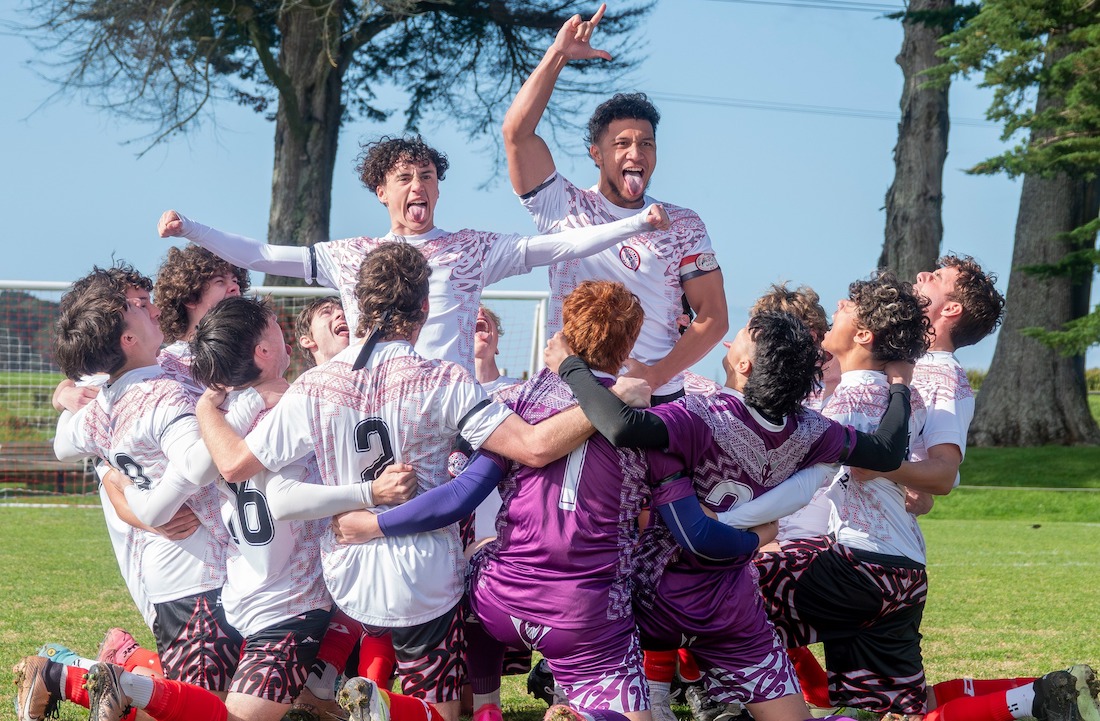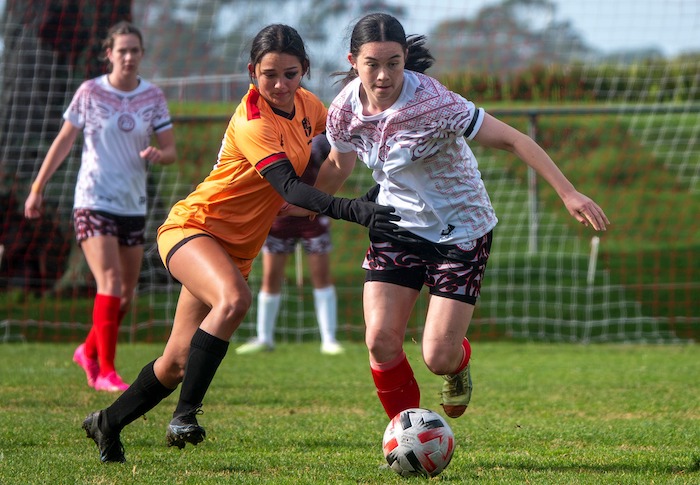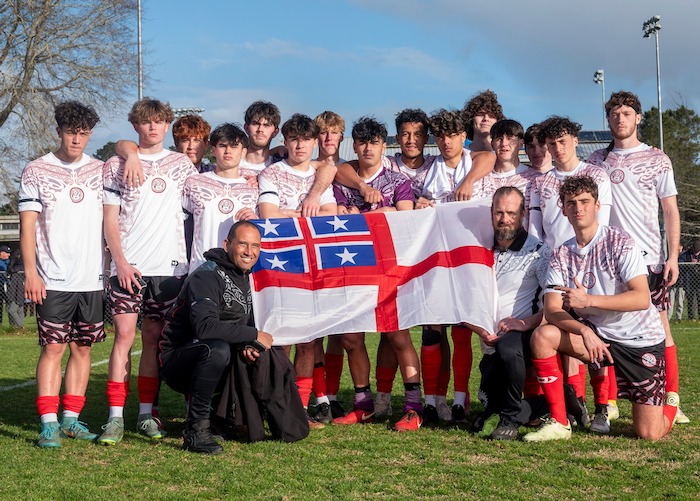
Māori Football Aotearoa Drives Māori Growth & Development Through Football in New Zealand
Sport Supporting Indigenous Communities
August 18, 2023
In our latest series, we’re taking a special focus on sport for development organizations within our network that serve Indigenous communities in honor of last week's International Day of the World’s Indigenous Peoples. Today, we’re spotlighting Māori Football Aotearoa, a partner of the Rexona Breaking Limits Programme delivered in partnership with Beyond Sport. We spoke to Founder and Chairman, Phillip Pickering-Parker about the organization’s work with Māori people, the Indigenous Polynesian people of mainland New Zealand (Aotearoa).
For millennia, Māori have been the tangata whenua (the Indigenous people of Aotearoa). They arrived in what is now known as New Zealand from their Polynesian homeland of Hawaiki in the 13th century. Upon their arrival, they established a community-based culture that was deeply rooted in spiritual beliefs and traditions. However, by the 19th century, the population had almost been cut in half due to conflict and disease from colonization and migration.
It was only with the signing of the Treaty of Waitangi between the British Crown and native chiefs, that some sovereignty over the land reverted to the Māori. There are now around 600,000 Māori people in the country, representing 15% of the population. However, the Māori continue to face social and economic barriers and have a lower life expectancy compared to other ethnic groups in the country.
Founded in 2008, Māori Football Aotearoa exists to support the growth of Māori and communities through football - #TiheiMauriOra. “Physical activity in its entirety is most important to Māori historically and futuristically,” explains Pickering-Parker. "The benefits of physical activity to help reduce non-communicable diseases such as obesity, diabetes and heart disease is important for Māori youth and communities who have a lower life expectancy. These are illnesses we can resolve with 30 minutes of football activity per day if accessible.”

Football is one of the most popular sports in the country, the largest participation sport for boys and the third largest for girls. But, despite this overall participation, Māori are underrepresented. New Zealand Football acknowledges that “with such a broad and passionate participation base, football is clearly an excellent vehicle for involving people in sport and physical recreation, which in turn plays a vital role in the social, cultural and economic well-being of New Zealand.” The organization sees an opportunity to improve participation rates and the social, cultural and economic benefits of the sport to wider communities across the country.
Māori Football Aotearoa has a vision to support those that are interested in getting into football, whether as a player, coach, manager or administrator. It’s guided by a holistic approach, steered by a core principle of social inclusion and underpinned by four pillars: Kaitiakitanga (Guardianship), Whakawhanaungatanga (Connectivity), Kaiwhakamana tōrangapū (Political advocacy) and Kāwanatanga (Governance). The organization’s mission is to support the co-existence of cultures and create one culture – a football culture strengthened by Māori participation. It supports cultural traditions on and off the field including the traditional Haka, a dance which is usually performed in a group and represents a display of a tribe's pride, strength and unity.
The hurdles that exist for the participation of football for Māori are the lack of financial capacity for football programs and clubs, transport and a lack of family support as the sport isn’t traditional for a majority of Māori peoples. Therefore, the organization actively engages in the planning and implementation of community initiatives that support young people with a particular focus on Māori engagement. These initiatives span leadership, governance and facilitation for Māori involved in football, to raise awareness and grow the game as well as providing opportunities for Māori to experience the physical and wellbeing benefits of the sport.

Māori Football Aotearoa has a "Te Mareikura" and "Te Whatukura" program, which guides a cohort to understand Māori Football Aotearoa's vision, mission and key objectives in order to step into the governance level of the organization. “The future needs to be constructed in partnership with the young people of today as they will inherit the planet and all that was laid out before them. If the future is a future that is valuable to today's future leaders, it needs to have their voices in its construction, so they know what they are headed towards,” says Pickering-Parker.
Initiatives include a good mixture of football and cultural programming and center around the development model, Te Whetū Rehua, which is headed by Sport New Zealand and Moana-Lee Raihana. Developed with the Māori community, the framework is based on values important for Māori cultural and social development. It helps play, active recreation and sport providers consider how they might design or adapt activities to be culturally responsive to Māori.
Pickering-Parker shares that the organization recently partnered with the Australian Indigenous Football Council (AIFC) and is working towards a partnership agreement with Hui Kanaka Powawae (Hawaiian Football Association) to extend the legacy of the Māori people beyond the country, joining forces with its Aboriginal and Indigenous counterparts. “We have an open conversation with New Zealand Football ongoing to understand each other and each other's vision and where the intersections can be made without imposing each other's individual values on each other. It is important to maintain independence but work on selective projects to increase the health and well-being of each other and all that consumes football across the country.”
Photos: Māori Football Aotearoa Facebook